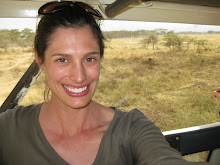After being here a few months, and reading a fair amount of literature about various projects implemented by foreign NGOs, I am starting to have somewhat strong feelings against aid. What is aid? Aid is giving out something for nothing, with the recipient having no way of obtaining that resource again independently. For example, donating clothes, a building, a shipping container of medical equipment, etc.
What’s wrong with that?
The problem is that outright aid creates dependence, instead of independence. It makes the recipient reliant on the donor. As one of my co-worker Elizabeth’s development professors writes, "a social welfare paradigm...leads to the creation of dependency syndrome among the recipients of handouts…people get hooked to assistentialism, a state of helplessness waiting for rescue missions. In the case of handouts-for-work, people usually don’t see the need to sustain the projects they [have] started once the source of such handouts is exhausted or depleted. They will sit and wait for the donor to come back, no mater how long it takes.”
True, it feels really good to give someone food or shoes or clothes or a new pit latrine—“Look! The orphan has shoes now! Because of me!”—but doing so just fixes the superficial problem, rather than getting to the root cause of the issue. Why doesn’t the kid have shoes? What caused that? In my mind, aid is selfish: It makes us, the donors, feel good about ourselves. But what happens after we’re gone and the shoes wear out? How will the child get new shoes? She’ll have to find another donor. Giving that pair of shoes fixed the immediate issue at hand, but doesn’t get at the root of the problem.
The alternative to aid, which I do believe in, is participatory community development (PCD). PCD is going into a community, finding out what the community's goals are, and supporting them initially to accomplish these goals themselves. Teaching people how to fish instead of giving out fish. Participatory community development is more involved, expensive, and certainly less gratifying in the short-run, but in the long run, it’s more sustainable and breaks the cycle of aid dependence.
No doubt, right about now you’re saying, “Waaaaait a minute, Norris, wasn’t your FSD project to donate a rainwater harvesting system to a school for orphans and low-income kids?” Yup, it was. And I’ll b the first to admit that my project was part aid. FSD and you, my donors, gave the school the tank, pipes, etc. outright. So for that, I’m a hypocrite—it would have been more sustainable if I’d helped the school management committee, parents and even orphans establish income generating projects, through which they could earn their own money to buy a tank themselves… In retrospect I probably should have done that, even though they wouldn’t have had that tank for years to come.
I think that when I read all the needs assessment surveys done by previous volunteers, and visited the school, I was overwhelmed by the fact that this school had no water, and wanted more than anything to help them get it. I guess I was blinded by emotion.
But as Kelly, the centre principal, has reminded me, the project will help the kids stay healthy and reduce the amount of time they spend fetching water, therefore keeping them from missing school, and hence getting an education. And as we know, education key factor in getting out of poverty and becoming independent and able to support one’s self. And the lifetime of this thing is a gopod 50 years...
And there were some participatory development aspects to the project it as well, in the form of capacity building and training:
- Our plumber Patrick trained members of the volunteer Centre Management Committee (CMC) on how rainwater harvesting systems work.
- I made sure the CMC, Kelly and my co-workers were involved every step of the way, from submitting the proposal, to planning the system, to hiring tradesmen, to purchasing the materials to helping with the digging, painting and mason work. They now know all the steps involved and if they want to implement a similar system elsewhere, will know how to. Even the kids who live around the center pitched in during their April holiday and learned a lot.
- In writing the proposal together, Kelly, my coworkers and the CMC learned a lot about the grant writing process.
- I reiterated again and again and again to the CMC that they have ownership of the tank and are in charge of all repairs and maintenance going forward. Due to the massive amount of volunteer time they invested in it, I’m optimistic that they will actually take care of it.
- The last element of the project was a brief lecture by Maggy, our community nurse, to teach/remind the kids about healthy sanitation and hygiene.
----
The book I quoted above is Demystifying Participatory Community Development, by Francis W. Mulwa, PhD of Development Studies. I would encourage anyone volunteering in Africa, or anywhere for that matter, to try to get their hands on a copy.

2 comments:
What a great post, Katy. Thanks for challenging us to think differently about giving!
Right on, Katy! I knew you knew the difference between assisting development and giving aid. The rainwater retrieval system is something that will continue to give long after you've left. The villagers have incentive and the means to maintain it. And it is strengthening the village. You da bomb! :D
Post a Comment